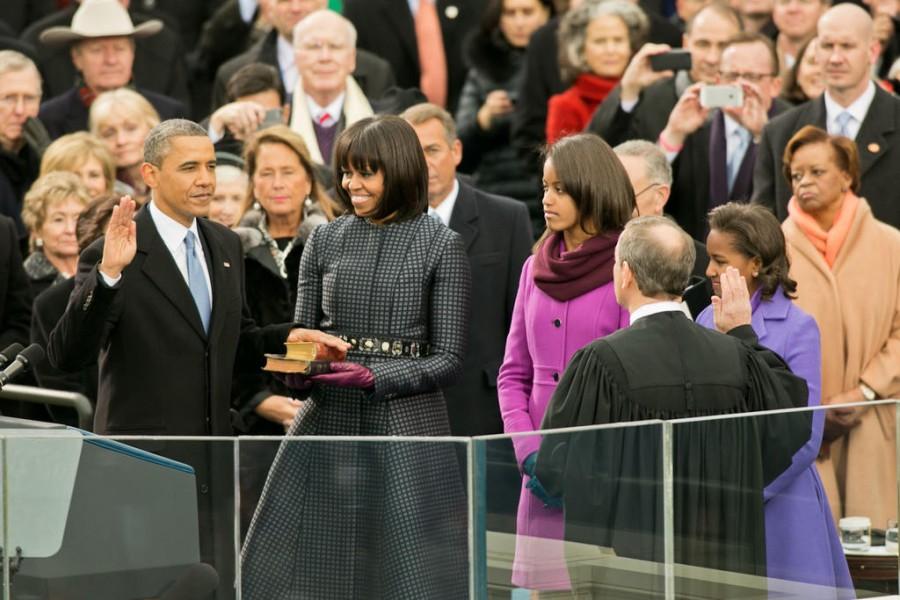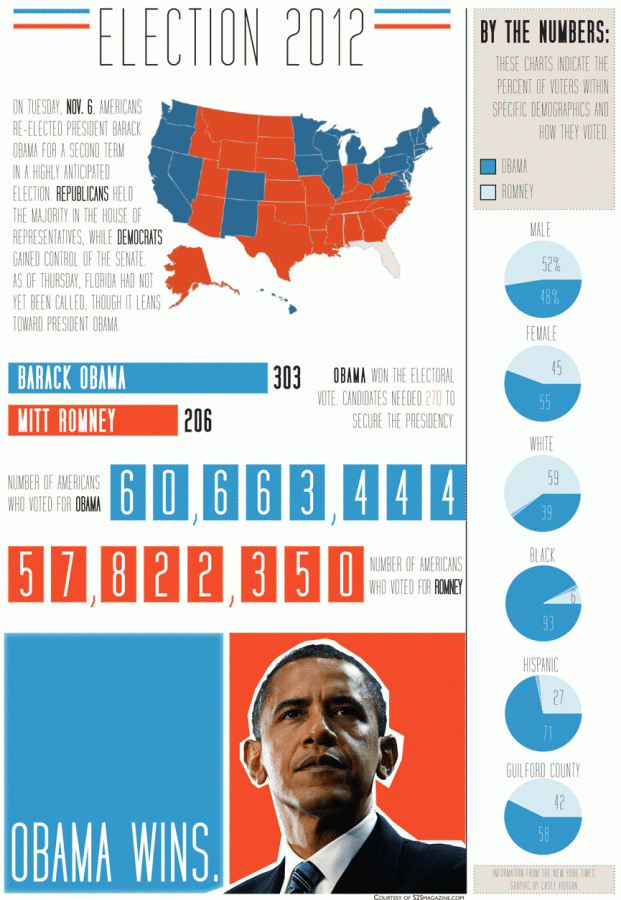States across the nation have passed progressive legislation into law.
On Nov. 6, referendums allowing same-sex marriage were approved by voters in three states: Maine, Washington, and Maryland. Similarly, Minnesota’s proposed constitutional ban on same-sex marriage was struck down.
Though junior Anney Bolgiano did not vote in her home state of Maryland, she was “incredibly overjoyed” that the Civil Marriage Protection Act, also known as Question 6, was passed by Bay State voters.
“Now, in Maryland, when LGBT folks merge onto the Beltway, walk into a grocery store or stroll down a busy street, they can look at their fellow Marylanders and think, ‘Most of you don’t accept the discriminatory bullshit against marriage equality,’” Bolgiano said in an email interview. “That’s a nice feeling.”
Bolgiano also believes that Question 6’s approval indicates a shift in the public’s view of LGBT rights.
“I feel that the overall sentiment of inclusion and acceptance is gaining momentum,” Bolgiano said. “Not only are we moving in the right direction, but we are gaining momentum as we do so.”
Seattle resident Dianna Potter was equally enthusiastic about Washington citizens voting for marriage equality by passing Referendum 74.
“I voted in favor, and I was a very vocal supporter of it,” Potter said in an email interview. “And Seattle is absolutely thrilled! This city is hugely supportive of its LGBT population, and we are so happy and proud to have taken this step toward equality.”
Potter believes that there are wider benefits as well.
“Approving marriage equality will also provide an economic boost for Washington State, via both the wedding industry as well as more people moving to Washington for work,” Potter told The Guilfordian.
“Between the passage of Referendum 74 and the vocal support marriage equality enjoys from businesses like Microsoft and Starbucks, Washington has become a very attractive place to live for same-sex couples or gay individuals who want to get married someday.”
Not only did Washington voters elect to protect same-sex marriage; they also approved the legalization of marijuana. Initiative 502 regulates and taxes marijuana’s sale and production and decriminalizes possession of small amounts of cannabis by adults over the age of 21.
“I see many positive effects from this law,” Potter said. “I think a policy position that treats marijuana use as a serious crime is absolutely draconian — just a holdover from fear-mongering 20th-century politics, ‘Reefer Madness,’ all of that.”
“It’s mind-boggling to me that our society sees alcohol and tobacco use as perfectly acceptable, if risky for your health, but marijuana use as a crime,” Potter concluded.
Colorado also legalized marijuana for recreational use. Medical marijuana was legalized in Arkansas and Massachusetts.
“Question 3’s passing indicates an increasing acceptance of cannabis use in Massachusetts,” said Bostonian Peter Domanico in an email interview with The Guilfordian. “As the general population becomes aware of its benefits for critically ill patients, I believe the push for full legalization will increase.”
However, marijuana legalization presents some hurdles. As Greensboro attorney Robert O’Hale pointed out, state legalization does not change federal law.
“The Feds can still bust you, even if you have a prescription,” O’Hale said in a phone interview. “The question is, will they? Typically, the answer is no, because the federal authorities won’t take any case involving a small amount of marijuana. Law enforcement knows that marijuana isn’t a big problem. Marijuana just makes people listen to music, watch TV and order pizza.”
Several other important reforms passed on Tuesday, Nov. 6.
California amended its three-strike felony policy, which previously sentenced third-time offenders of petty theft and drug possession to 25 years to life in prison; the new regulations reserve the system for only serious, violent crimes.
Maryland passed the Dream Act, providing in-state tuition for illegal immigrants meeting certain requirements, such as filing income taxes.
The voters of these states must now adopt the implications that follow the newly passed legislation. Time will tell the success of these reforms, but Tuesday, Nov. 6 proved the people are open to a progressive future.









